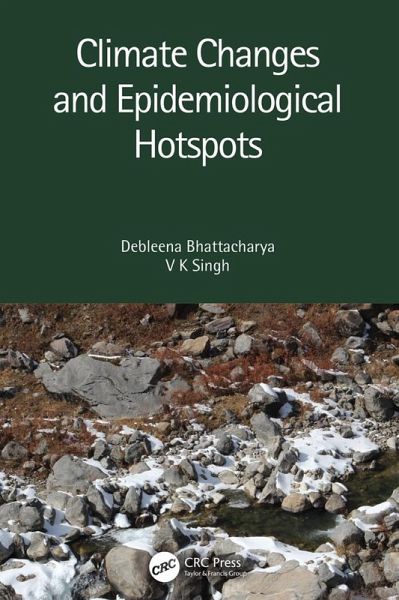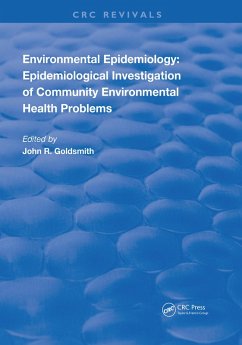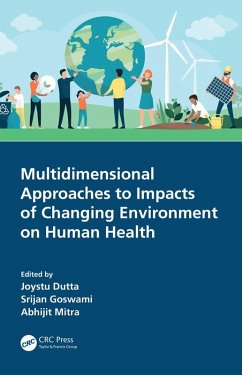
Climate Changes and Epidemiological Hotspots (eBook, ePUB)
Versandkostenfrei!
Sofort per Download lieferbar
44,95 €
inkl. MwSt.
Weitere Ausgaben:

PAYBACK Punkte
22 °P sammeln!
Climatic change plays an integral part in planetary health and is amongst the most important global environmental aspect that has an impact on human health. The linkage between the environmental change and disease dynamics has been highlighted in recent times and hence, emphasis on environmental sustainability to reduce future epidemics. Present book focusses on the relationship between climatic change and epidemiological factors with an approach to reduce the global hotspots. The climatic changes relevant to periods of activity and variations in geographical distribution is addressed includin...
Climatic change plays an integral part in planetary health and is amongst the most important global environmental aspect that has an impact on human health. The linkage between the environmental change and disease dynamics has been highlighted in recent times and hence, emphasis on environmental sustainability to reduce future epidemics. Present book focusses on the relationship between climatic change and epidemiological factors with an approach to reduce the global hotspots. The climatic changes relevant to periods of activity and variations in geographical distribution is addressed including interconnection of sustainability, population growth and environmental change.
Features:
This book aims at Graduate Students, Researchers, Professionals and Health Care Professionals in environmental engineering, waste management, climate change, and healthcare.
Features:
- Covers environmental management and waste to resource for future.
- Includes guidelines for analysis, assessment, and interventions for waste management.
- Discusses environmental impediments in the way of healthcare inclusions.
- Impresses upon the importance of clinical epidemiology to detect, treat, control, and prevent the spread of non-communicable diseases globally.
- Provides insights for the future health hazards that can be administered at the insignificant stage.
This book aims at Graduate Students, Researchers, Professionals and Health Care Professionals in environmental engineering, waste management, climate change, and healthcare.
Dieser Download kann aus rechtlichen Gründen nur mit Rechnungsadresse in A, B, BG, CY, CZ, D, DK, EW, E, FIN, F, GR, HR, H, IRL, I, LT, L, LR, M, NL, PL, P, R, S, SLO, SK ausgeliefert werden.













